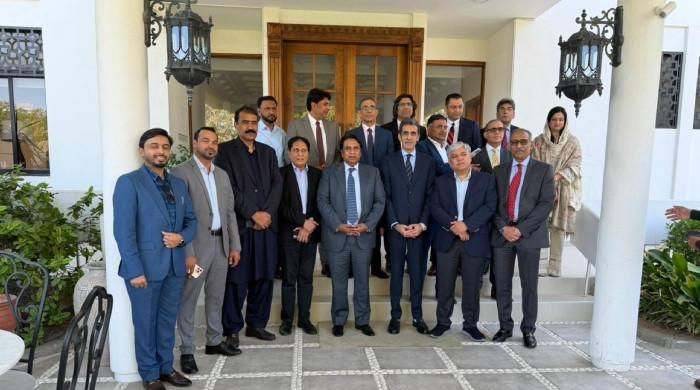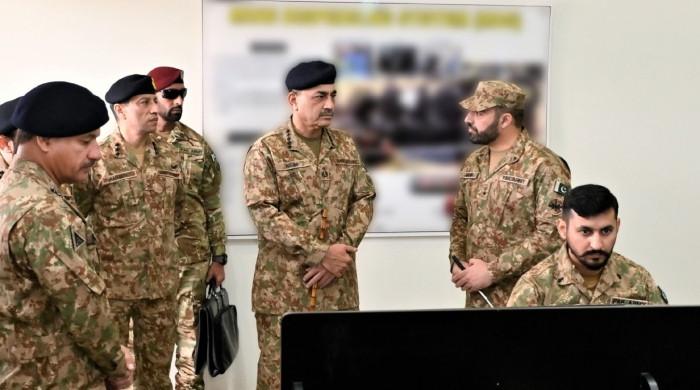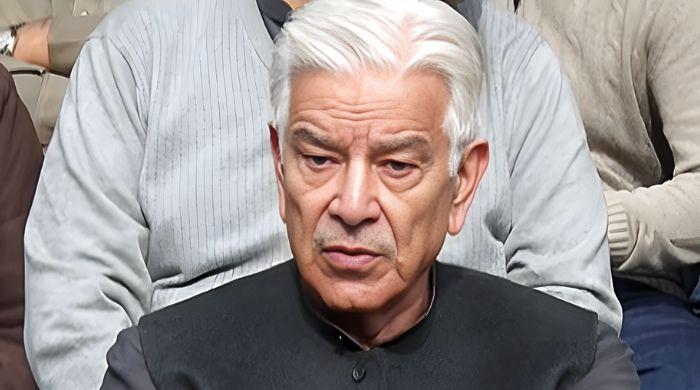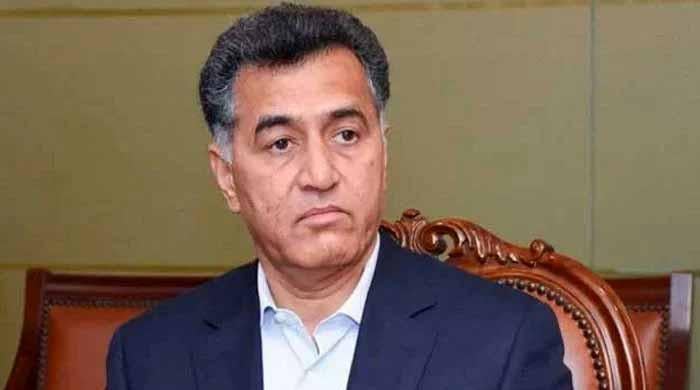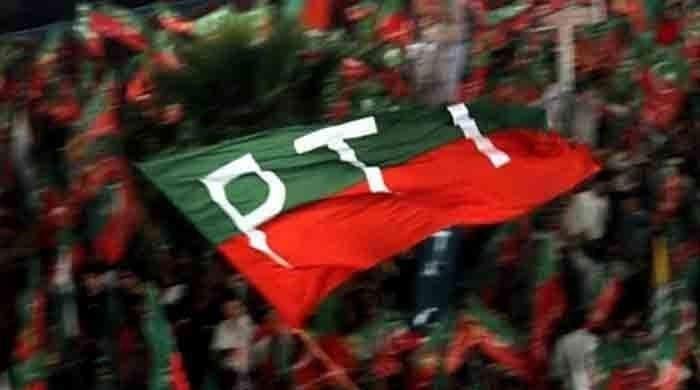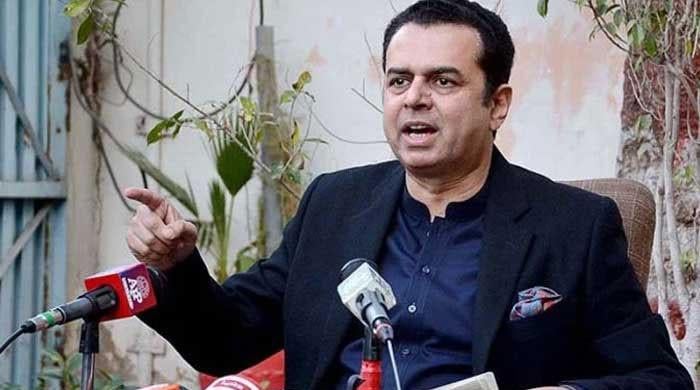Civil, military authorities must tackle challenges together: Shehbaz
Chief of Army Staff is a professional and straightforward man, remarks Punjab CM
April 04, 2018
LAHORE: Chief Minister Punjab Shehbaz Sharif remarked on Wednesday that the civilian and military authorities must work together to counter the challenges facing Pakistan.
Shehbaz said that he read about the ‘Bajwa Doctrine’ in the news, adding that Chief of Army Staff is a professional and straightforward man. He also shared that he met the army chief while speaking to media during a visit to Pakistan Kidney and Liver Institute in Lahore.
“We must respect and honour the endeavours undertaken by the army chief,” he asserted.
The provincial chief minister weighed in on the role of National Accountability Bureau in the country and remarked that the bureau is quite active these days.
He remarked that if a transparent accountability system helps the country move forward, then it will be a great success.
On the controversy surrounding Orange Line Metro Train (OLMT) project, he remarked that no evidence regarding corruption in the project has surfaced.
"Imran Khan [Pakistan Tehreek-e-Insaf chief] said that corrupt practices were undertaken during the construction of the Orange Line project, but nothing of the allegations were proven," the CM said.
"We should refrain from engaging in politics of lies and allegations."
Reiterating his earlier claims, the president of Pakistan Muslim League-Nawaz said that PTI has given birth to a culture of strikes and dharna. "Nations which are prosperous don't stage protests frequently," he remarked.
He claimed that the protests and strikes have led to a 22-month delay in the Orang Line project. "PTI put up hurdles [in wake of progress] so that the citizens are not able to reap benefits of different facilities," he remarked.
“If given the opportunity, we will bring Sindh and Khyber Pakhtunkhwa at par with Punjab,” he shared, adding that he wants to improve the healthcare facilities in Sindh and KP.
The chief minister said that there is no shortage of medicine in any hospital in Punjab. He remarked that the Punjab government is making efforts to ensure that all routine and special patients receive medicines.




